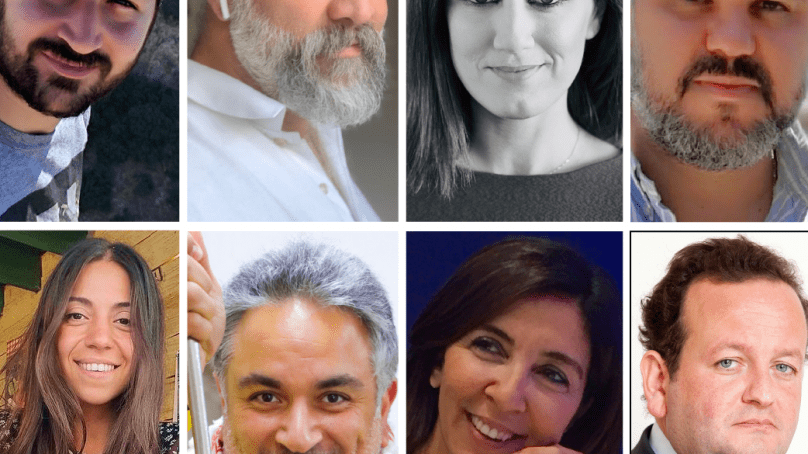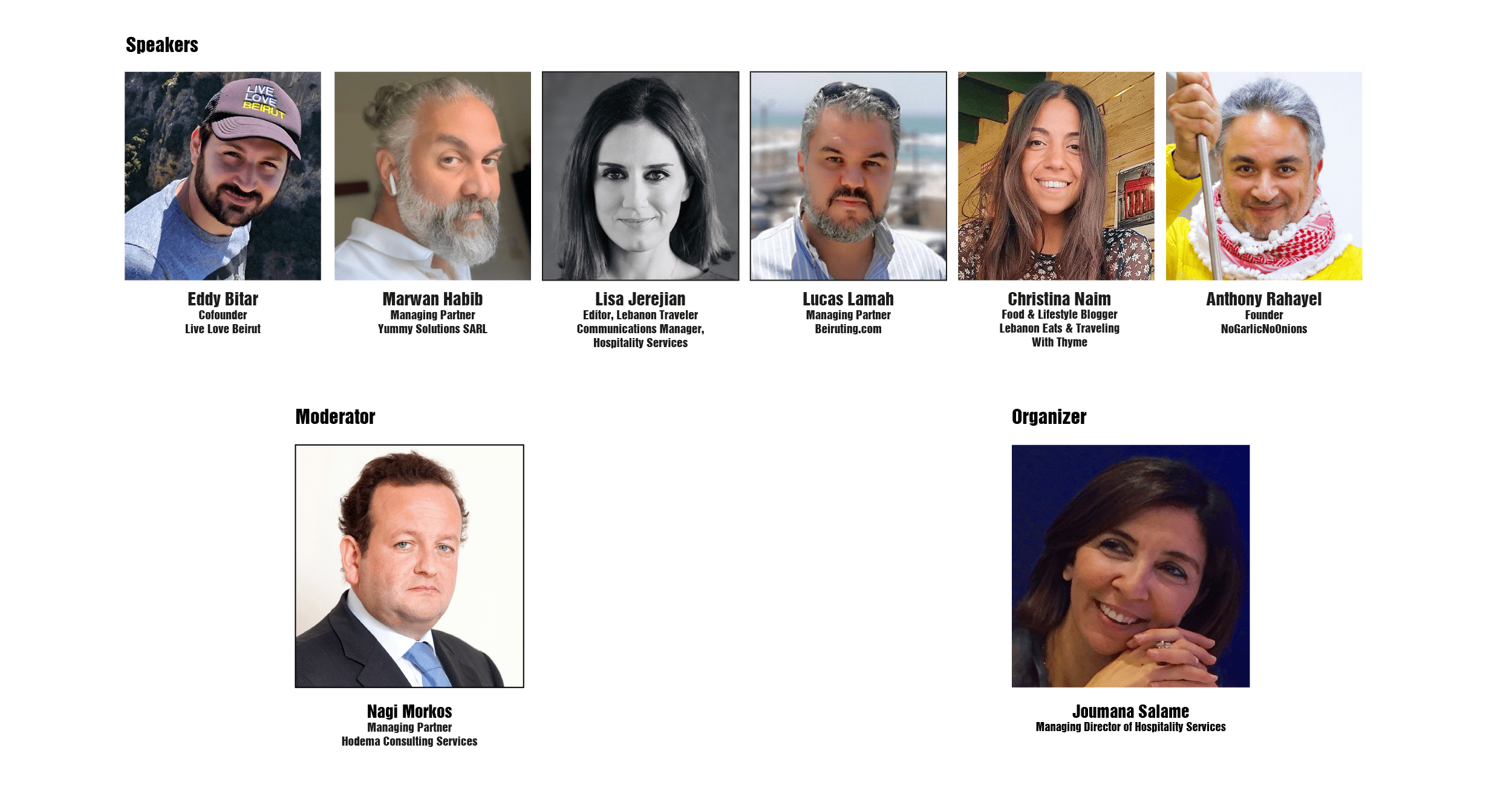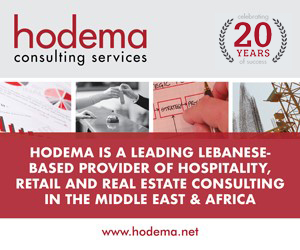Powered by Hospitality News Middle East and funded by the USAID Lebanon Enterprise development (LED) project, Hospitality News Talks held its ninth virtual roundtable on April 8 — “Changing perceptions: what Lebanese influencers and bloggers are doing to promote Lebanon.” The online session, one of 12 such talks moderated by Hodema consulting services, invited well-known bloggers, social media influencers and communications professionals to interact virtually and suggest ways in which Lebanon can be promoted, particularly online.
The panel included: Eddy Bitar, cofounder of Live Love Beirut; Marwan Habib, managing partner of Yummy Solutions SARL; Lisa Jerejian, editor of Lebanon Traveler and communications manager of Hospitality Services; Lucas Lamah, managing partner of Beiruting.com; Christina Naim, blogger – Lebanon Eats & Traveling with Thyme; and Anthony Rahayel, founder of NoGarlicNoOnions. Nagi Morkos, managing partner of Hodema Consulting Services, moderated the session.
Rahayel, who appears on television and has a popular food-related YouTube channel, kicked off the discussion by highlighting the country’s many positives: the people, food, weather and history, among other things. He said that Lebanon taught others in the region and beyond the meaning of superior food, freshness and good taste. “We don’t agree on many things, but food unites us.”
He spoke about the importance of supporting small businesses and hidden gems, such as village bakeries, especially during these incredibly challenging times. “We need to shine a bright light on these people and use our platforms for the common good.”
Rahayel criticized the news and certain media outlets for sensationalizing things and breeding negativity. “We are a small country, so why we do everything with passion in our own way. We need to stop speaking badly of our country; it starts with us. We don’t need to share everything with tourists because they will never know about the problems the country is facing unless we tell them!”
Bitar discussed the fundamentality of planning and having the right mechanism in place to promote Lebanon successfully. “We need to implement a realistic strategy and sell Lebanon as an exciting destination because not everyone knows it or has the right impression about it,” the NGO cofounder said.
He stressed that official bodies need to handle the major task of promoting Lebanon. “Work needs to be done at the governmental level by the MOT. We cannot do it all. It requires massive funding. A destination management company is required.”
Bitar added that branding Lebanon as an exciting destination that offers a broad range of experiences is the right way to go. “We need to make sure that the destinations we promote are well preserved by the MoT. The goal would be to have 400,000 tourists this summer.”
Habib said that he uses video content to help local businesses and share information about hidden places. “Videos are a great way to trigger emotions and tell stories.”
He added that the biggest challenge is bringing the people together and agreeing how to work together. “I collaborate with other influencers to promote and connect people. Each person has a vision, so it’s sometimes difficult to align.”
Habib suggested having a different theme/destination each week and coordinating between all influencers to heavily promote it and flood social media. He also said that there should be small offices in individual municipalities where people can go to learn about the food, culture and sites that can be visited.
Jerejian said that collective action is required and people need to learn to work together and drop the ego. “It is a clear that we are all passionate about Lebanon, but we must join forces. It is the only way forward. If Lebanon is to rise again, we need to be organized and plan, and this is not something we are always good at.”
She spoke about Lebanon Traveler as a platform for those passionate about Lebanon, providing a space for contributors who want to share their expertise, interests and their photographs. “The site is dedicated to sharing the best of Lebanon. We talk about art, culture, destinations and so much more. In 2018, the BBC filmed The Travel Show in Lebanon, and we were part of it. People want to explore the country and understand it better.”
She further added that people are looking for experiential travel and immersive experiences. “The rules of the game have changed; learning about local customs, trying regional food and visiting producers and artisans is what travelers are looking for these days, especially Millennials — who make us a quarter of the world’s population. We should really target them more.”
Lamah spoke about focusing on the bright side and mentioned how Beiruting is supporting small businesses. “After the Beirut blast, we tried to show how people were helping one another. Despite all the problems we face in this country, there is something magical about Lebanon. We need to keep communicating this.”
Lamah said that DMOs are essential and other countries have official bodies that are responsible for promoting regions. “In France, each village has a tourism office. We should have this in Lebanon.”
Naim mentioned that she uses her social media platforms to showcase lesser-known destinations. She added that people often get in touch if they want to collaborate. “It is imperative to support local operators and talk about areas that people are not familiar with.”
The panelists agreed that more cooperation and coordination is required to promote Lebanon in an effective manner. While influencers can do a lot, they said that government funding is required and official organizations must do a big chunk of the work.
They also said that Lebanese have a duty to speak positively about their country, especially to foreigners; spreading negativity only damages the reputation of Lebanon. Changing perceptions and reiterating the beautiful side of the country needs to be the focal point.
Finally, they spoke about targeting new markets and not relying on tourism from the Gulf. It is clear that Lebanon appeals to a wide spectrum of tourists with a broad variety of interests — nature, history, culture, food, etc. It is a unique destination, particularly for Europeans and adventure seekers.
The webinar can be viewed in full here.
The eighth webinar, “Made in Lebanon: new opportunities for local food distributors, producers and farmers,” will take place on April 15. Click here to register.
To access the full program of Hospitality News Talks webinars, click here.















